
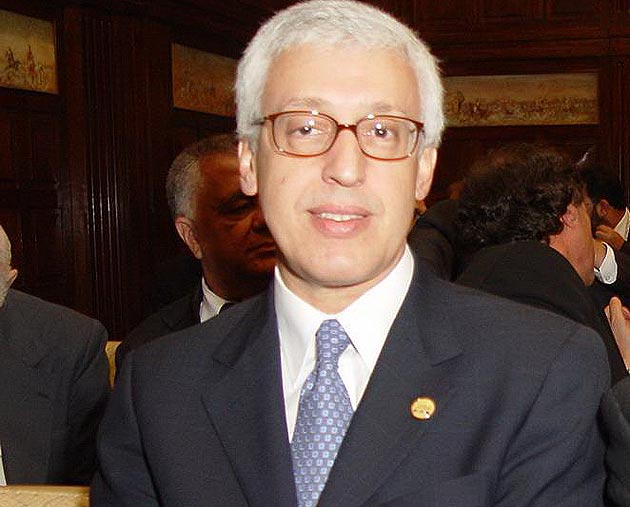
Growing Importance of Intra-Regional Travel
By Dean M. Bernardo, eTN Manila.
Manila, the Philippines (21 June 2017) – UNWTO – Marcio Favilla, the Executive Director for Operational Programmes and Institutional Relations of the United Nations World Tourism Organization highlighted the growing significance of Intra-Regional Travel.
The UNWTO official cited the phenomenal growth of Asia at 80% between Southeast Asia, and China, South Korea and Japan. The official took note of the robust and resiliency of the region through its continuing promotions.
The promotion process tells the world of what these countries has to offer to the world, citing the Philippines as a prime example of a nation with “great advantage.”
Favilla said Filipinos are kind people with kind smiles who welcomes guests from all over the world, an advantage that continues to win hearts of its neighbors.
The entire region is greatly benefiting from two revolutions: the Information Technology revolution and the Travel revolution sweeping across the world and with a rising generation of tech-savy travellers, tourism is far different to what was before.
Countries should continue to adopt new technologies in order to take advantage of these growing opportunities, such as, promotions before were done with flyers while now its easily done through social media.
UNWTO Regional Director for the Asia-Pacific region Xu Jing also added that acquiring interests from among Chinese tourists is now more readily and easily done sing social media platforms instead of travel agencies.
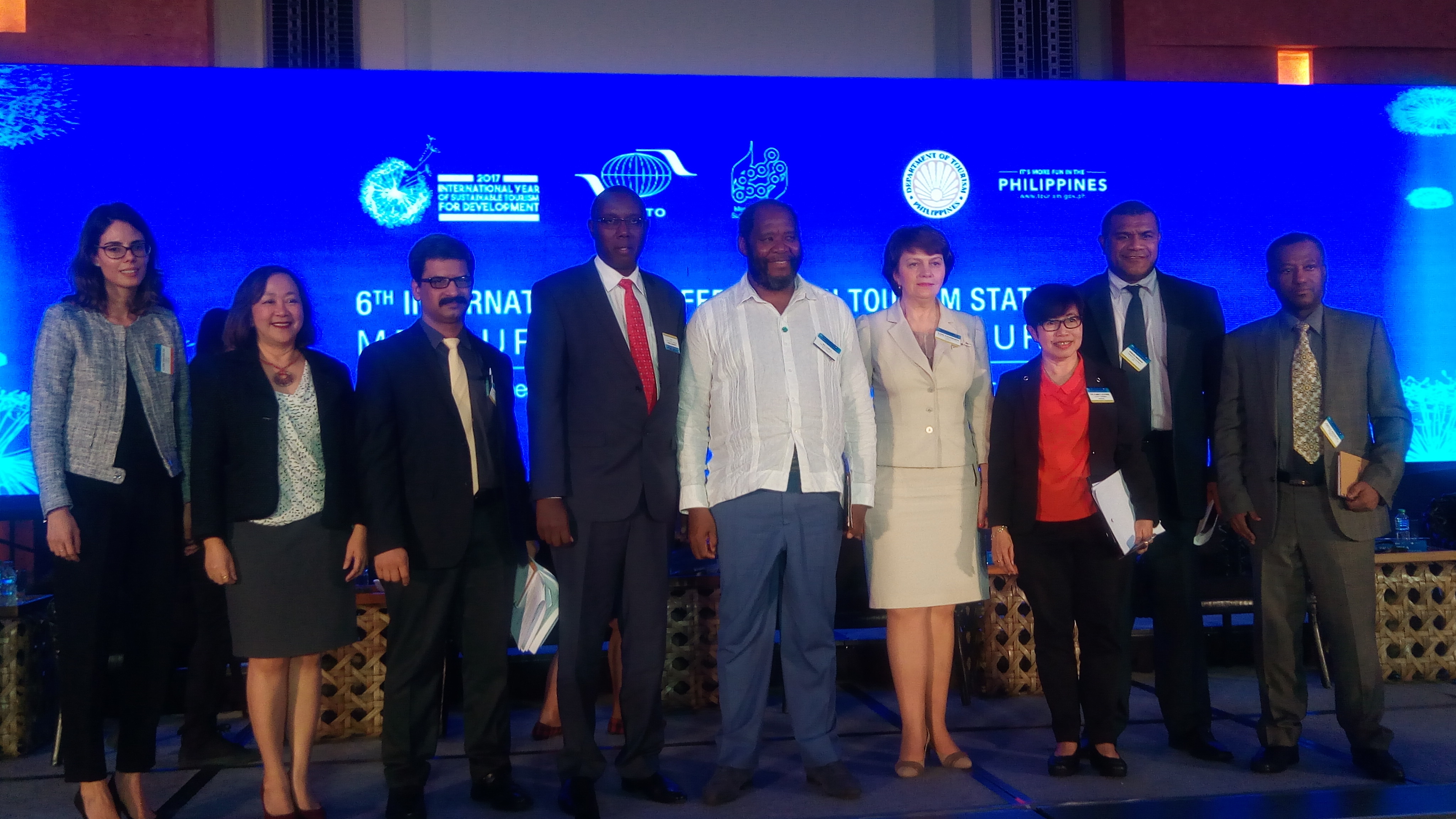
Statisticians Take Up Challenge of Tourism Ministers
By Dean M. Bernardo, eTN Manila.
Manila, the Philippines (21 June 2017) – UNWTO – Six heads of statistic agencies of six nations agreed to take part in crafting a global standardized form of metrics in determining and assessing data on tourism.
In the afternoon session of day one of the 6th United Nations World Tourism Organization (UNWTO) International Conference on Tourism Statistics held at Manila, the heads of statistics agencies for Oman, Kenya, Belarus, South Africa, Indonesia and Fiji affirmed the need for a framework on measuring performance in tourism.
UNWTO Regional Director for the Asia-Pacific region Xu Jing said the data generated from the statistics of every country’s tourism sector will help contribute in “capacity building.”
Xu cited the growth of the so-called Inter-Regional Tourism or IRT that has helped propel the economies of several nations dependent on tourism.
He also cited the example of countries in Southeast Asia and the Far East who have sustained their tourism economies from visitors in neighboring countries. Initial data showed that almost 40% of the growth in these countries are attributed to tourists from neighboring countries.
The three-day conference is part of a series of a year long activity by the UNWTO for 2017 as part of the “International Year of Sustainable Tourism for Development.”
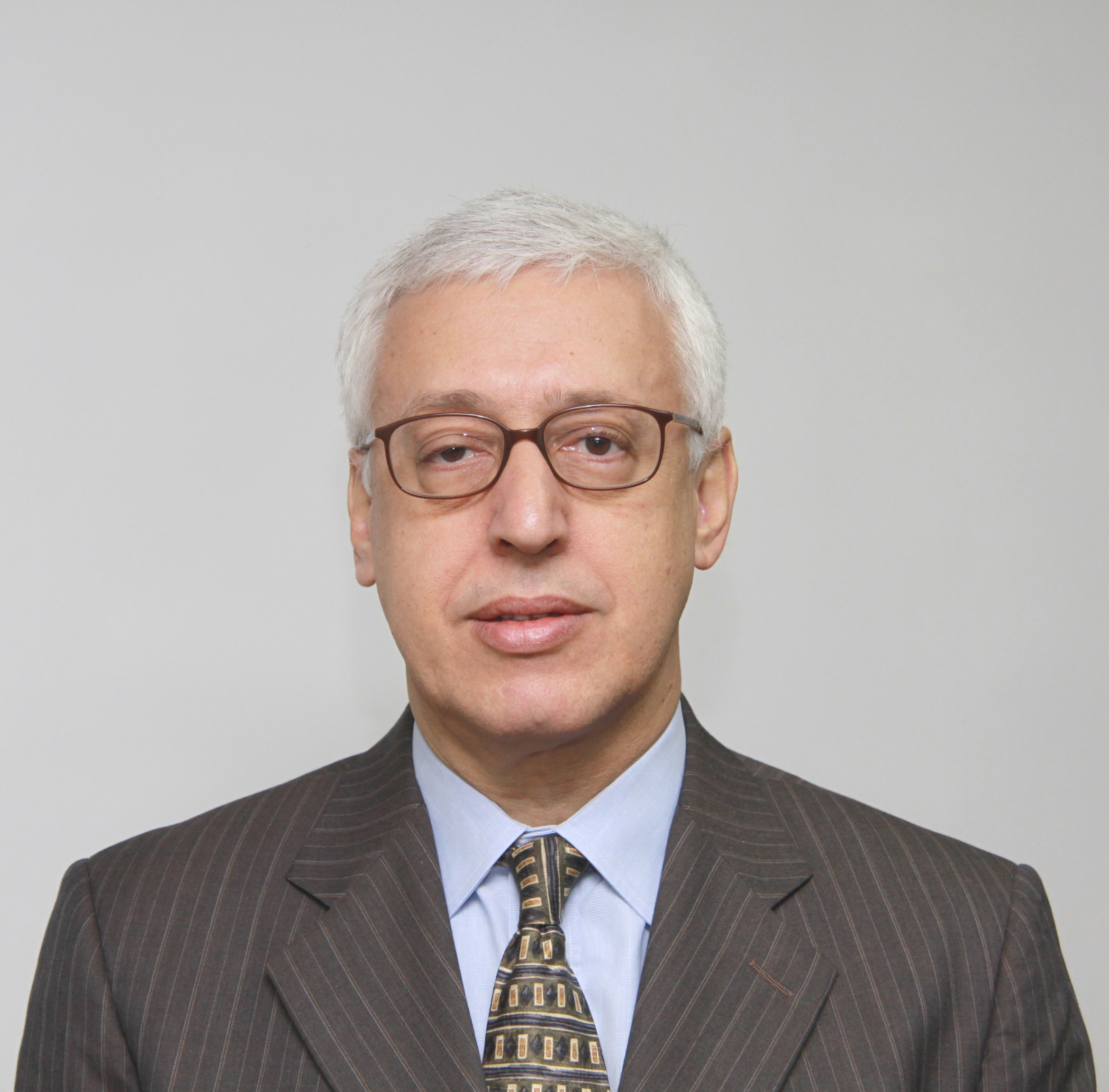
UNWTO Supports the Philippines’ Tourism Sector Despite Recent Troubles
By Dean M. Bernardo, eTN Manila.
Manila, the Philippines (21 June 2017) – UNWTO – Marcio Favilla, the Executive Director for Operational Programmes and Institutional Relations of the United Nations World Tourism Organization praised and thanked the Philippine government for hosting the three-day “International Conference on Tourism Statistics for Sustainable Development.”
During a press conference at the Marriot Hotel in Pasay City, Mr. Favilla highlighted the beauty and potentials of the Philippines, an example of a prime destination for travellers.
He added that the conference, where nearly sixty delegate countries – tourism and statistics ministers all over the world was sending a “political message” to everyone of their support for the Philippines.
The country is currently facing an armed siege in its southern island of Mindanao from a group claiming allegiance to the extremist group Da’esh or ‘Islamic State of Iraq and Syria’ or ISIS. The group continues to sow terror in the City of Marawi, resulting in the deaths of hundreds of soldiers, civilians and extremists.
UNWTO Regional Director for the Asia-Pacific region Xu Jing added that holding the conference in the Philippines is a demonstration of support to the country and for other nations facing similar conflicts.
Favilla added that nations facing domestic troubles should not be isolated. He called these actions as a “double whammy” – where countries are hurt by domestic problems and hurt again by travel advisories against visiting the troubled country.
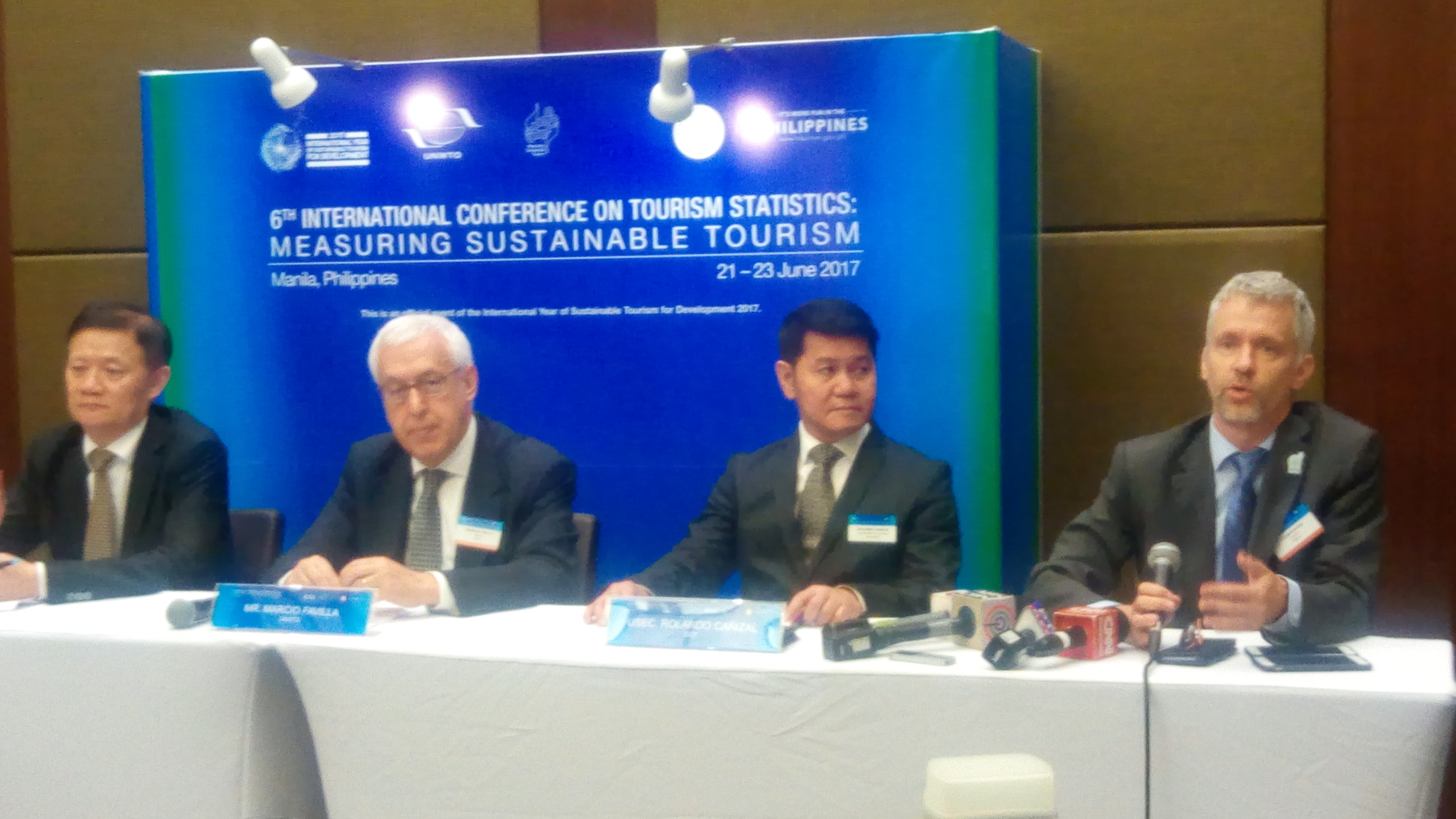
Statistical Data on Tourism Leads to “Capacity Building”
By Dean M. Bernardo, eTN Manila.
Manila, the Philippines (21 June 2017) – UNWTO – Two days prior to the formal holding of the on-going United Nations World Tourism Organization’s (UNWTO) “International Conference on Tourism Statistics for Sustainable Development,” countries with technical know-how on tourism data generation where in Manila for “capacity building.”
UNWTO statistician John Kesster said the group with delegates from Southeast Asia, Canada, the United Kingdom, Belarus and Turkey discussed the “economic impact of tourism that’s compatible with the national system of accounts, to enable governments to measure tourism like any economic indicator.”
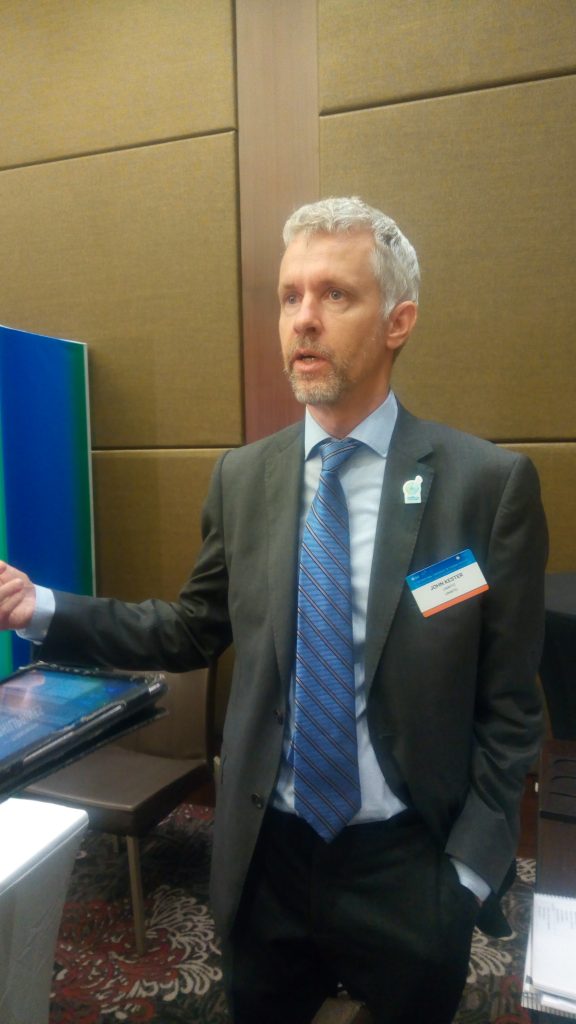
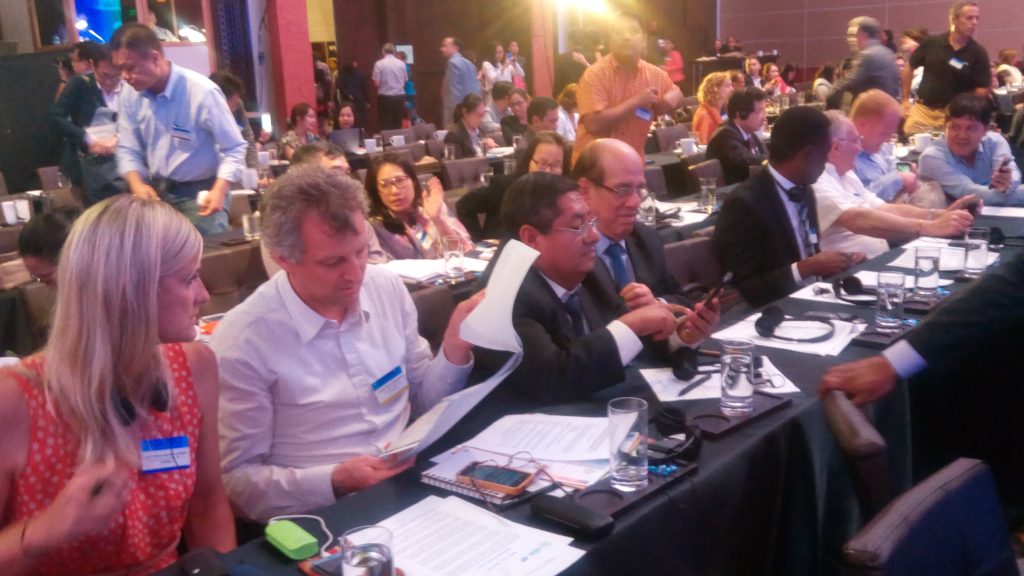
Kesster said delegates from different countries shared heir experiences including travel practitioners who shared their own experience. He adds that there were a number of varying types of tables on tourism that needs to be standardized, in a meaningful way.
He also stated that “developing standards for tourism is continuously evolving.” The group aims to develop a framework for very simple standards of measurements, and in time “improve and elaborate.”
He cited the ever changing activities in tourism as reasons for evolving metrics such as; effects of ride hailing phone apps like Uber in the metrics.
Kestter said, “We’ve never had that kind of activity ten years ago but now, we need to consider including that in assessing tourism activities as well.”
He also said “the challenge for statisticians nowadays is trying to keep up with the ever-changing innovations, try to create credible figures as possible.”
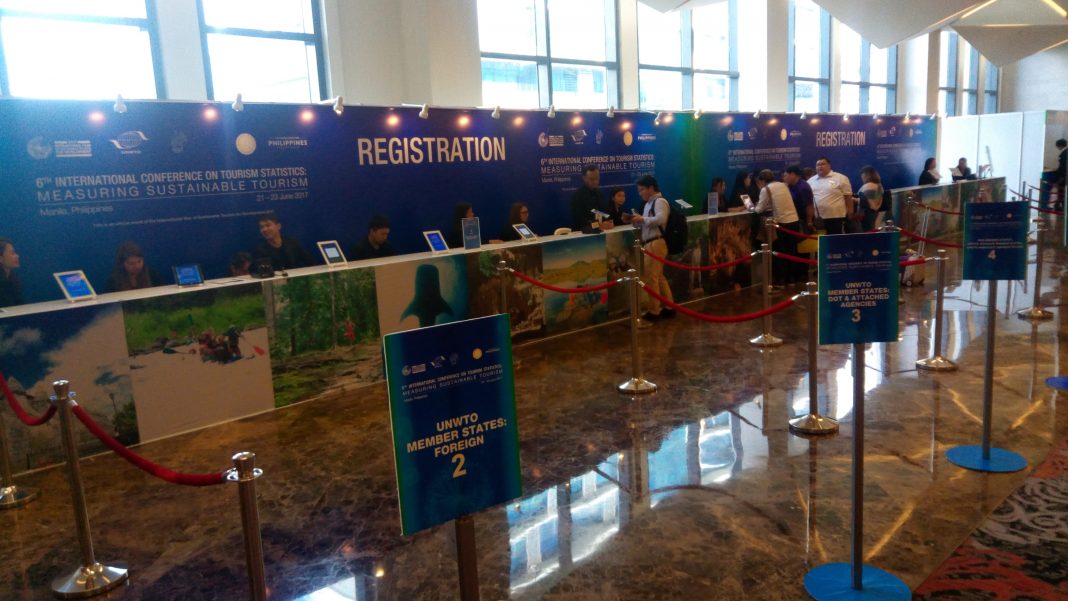
Measuring Tourism Data Makes Good Planning
By Dean M. Bernardo, eTN Manila.
Manila – The 6th United Nations World Tourism International Conference on Tourism Statistics opened Wednesday morning in the Philippine capital with thousands of delegates from around the world in attendance.
The three-day conference aims to determine and achieve a global approach in fulfilling the “Sustainable Development Goals” of all member countries.
Philippine Tourism Minister Wanda T. Tulfo led the welcoming of delegates at the opening ceremonies at the Newport Performing Arts Theater.

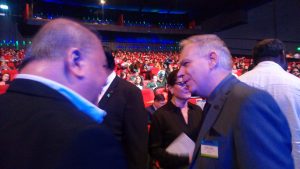

UNTWO Secretary General Taleb Rifal opened the conference and highlighted the recent rise of violence in different parts of the world and the risk it brings to the public and its effect on tourism.
Rifal praised the Philippines for its resiliency and its continuing efforts in bringing forward sustainable development in its tourism sector. Rifal added that the Philippines is a beautiful country with beautiful people with a smile, generous to give.
Rifal said in his speech that the violence should stop and adds, “There should be no hate. How can one hate someone who shared is home, his food to anyone visiting.”
Meanwhile, Paul Leholla of the UN Statistical Commission raised the importance of statistics in making public the truth in the era of fake news. He said that measuring tourism performance will bring better planning, better services in communities.
Philippine Senate President Aquilino Pimentel III also assured delegates that the Philippines continue to be a safe country despite the recent declaration of Martial Law in the southern island of Mindanao.
The Philippine is still fighting an insurgency led by militants who sieged the Islamic city of Marawi on May 23rd, attempting to establish a caliphate loyal to Islamic State of Iraq & Syria.
Pimentel stressed that the Duterte administration allows nearly US$23 Billion for the Philippine tourism industry under the “Build, Build, Build” program in the last 5 years of the current government.
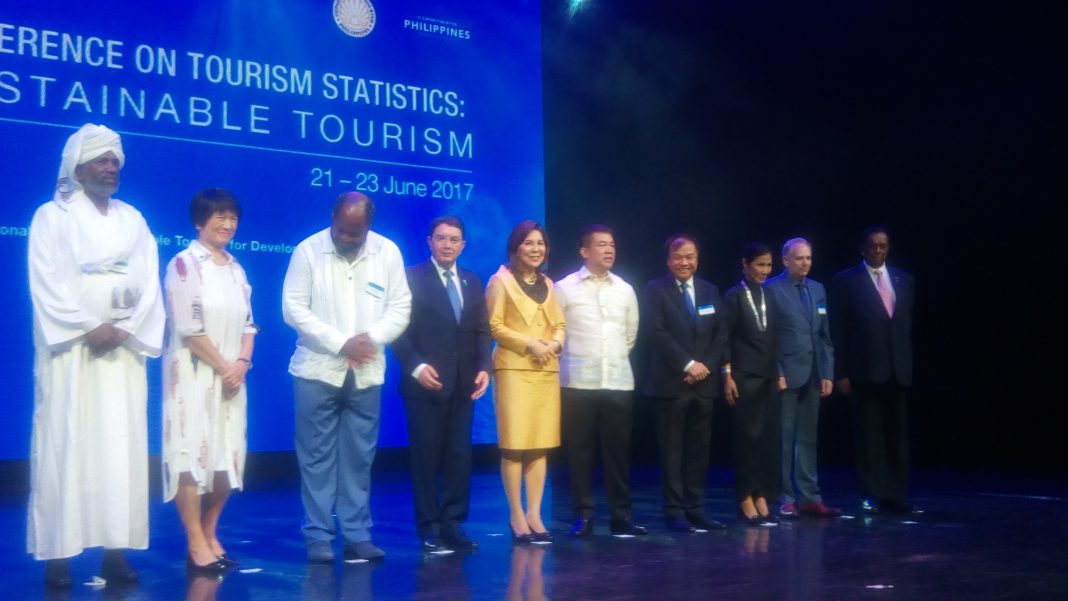
UNWTO Taleb Rifai: What is spend in a country stays in the country
By Dean Bernardo, eTN Manila.
Measuring Sustainable Tourism is simple according to UNWTO Secretary-General Dr. Taleb Rifai: What is spend in a country stays in the country.
2017 is the International Year of Sustainable Tourism for Development 2017. The Government of the Philippines and the World Tourism Organization (UNWTO) are currently in Manila, Philippines. This Wednesday morning the opening of the 6th International Conference on Tourism Statistics is taking place at the New Port Performing Arts Theater.
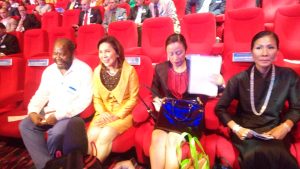

Attending are
H.E. Mrs. Wanda Tulfo-Teo, Secretary, Department of Tourism, Philippines
Mr. Salvador C. Medialdea, Executive Secretary, Office of the President, Philippines
Mr. Pali J. Lehohla, special envoy of the United Nations Statistical Commission and Statistician-General, Statistics South Africa
Mr. Taleb Rifai, Secretary-General, UNWTO
Senate President Aquilino Pimentel III, Senate of the Philippines
The UNWTO Secretary-General Dr. Taleb Rifai said: “I feel good here in the Philippines, I respect this place. I have respect for cuisine the animals and the beauty of the islands.
I am worried about the condition of this world, and the trouble surrounding it. We are now all connected one global community. “
We are a tribe of travelers believing in the beauty of the world. Tourism is a human right. Tourism builds peace and understanding.”
“Tourism breaks barriers.”
He continues to say: “Tell the world to come to the Philippines … the Philippines is a wonderful place. You can never have hate for people sharing their home their food. Tourism generates work.
We have to step up tourism for sustainability and move forward to a green economy. We cannot afford waste despite political issues.” Dr. Taleb has a simple solution: “What is spent in a country stays in the country.” if we can not measure we can not manage
If we can not measure we can not manage the negative impact.
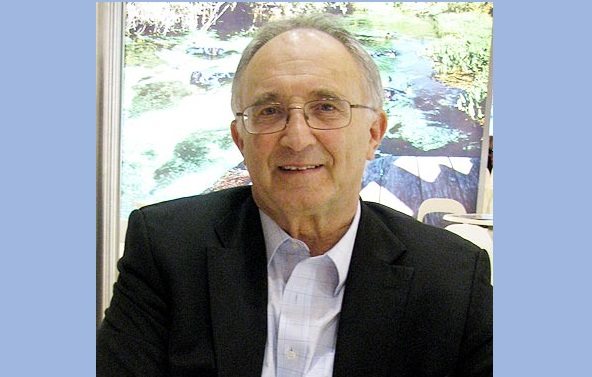
Impact-Travel: A sustainability template
Professor Geoffrey Lipman, President of the International Coalition of Tourism Partners (ICTP) and Co-founder of SUNx writes from Manila in the Philippines at the 6th UNWTO International Conference on Tourism Statistics: Measuring Sustainable Tourism.
“It feels good to be back in Manila for more fun in the Philippines. Not the usual description of a UN Statistics Conference.
“Even worse, I want to make two what I suspect are contrarian points about the proposed declaration. And then offer a suggestion to strengthen it.
“First, the past is prologue. As a sector, we are not going far enough fast enough. This declaration needs to be half as wordy; twice as much implementation; four times as fast. And some real multi-stakeholder checks on delivery.
“Why? Because the scale and speed of change and connectivity is accelerating, and if we don’t move at the same pace, the decisions will be made outside our sector – by environmental and finance institutions, by business coalitions, by local authorities, by states and regions, and by very smart cities.
“This is not business as usual. Climate change is existential… repeat, existential.
“Second, we need to expand our vision of measurement of sustainable tourism. We are moving into a new age of SDG and Paris targets.
“Linked environment and tourism satellite accounts are a good step. But it’s a first step that should have been taken more than a decade ago – when some of us were actively calling for it.
“I repeat, we need to cover the green part of the equation much faster.
“And it needs to have more emphasis on measuring climate resilience. If we don’t fix climate change: it will fix us.
“How to do this will take as much of a paradigm shift in the use of statistics as in security, product, or technology adoption.
“We have to cut through the admirable but dangerous, shifting clutter of 17 SDGs, 169 targets, and 304 indicators with hundreds of national and supra-national groups with their version of the transformation roadmap for the future of everything.
“And more so as the real consequences of tourism – good and bad – are ultimately felt at the local level. The money, the jobs, the infrastructure, as well as the strain on resources and cultural integrity.
“The global figures are great for policy declarations and lobbying, and rich companies and consultancies. Implementation is almost always local and SME focused.
“We have to act from the bottom up simultaneously with the top down.
“We need deadlines for change, and we need to engage all key stakeholders in the process by 2020.
“Clearly, we need to move in the directions set out in the resolution – recognizing, observing, linking, intensifying, and expanding collaboratively.
“What I believe is missing is a template for a multiyear refocused directional shift that could be useful to countries, communities, companies, and consumers points that anyone, anywhere can easily check, seeking sustainability in tourism and travel activities.
“Our idea at SUNx for such a template is called Impact-Travel. It has three such points of focus.
“1. Are the Impacts measured and managed coherently: the good and the bad ones?
“2. Does it have Green Growth at the core: low carbon, inclusionary, hyper-connected, bio-diversity sensitive & resource efficient?
“3. Is it future focused – reflecting Paris 2050 targets, the SDGs, and the World Economic Forum’s Fourth Industrial Revolution – the best tracker of new directions we have found?
“Simple questions that give a clear sense of direction for providers and consumers alike, as to where we have to go NOW, to be where we have to be in 2050.
“As Dr. Johnson said, ‘Nothing so concentrates the mind, as the prospect of being hanged in the morning.’ And make no mistake, existential means being hanged in the morning.”
